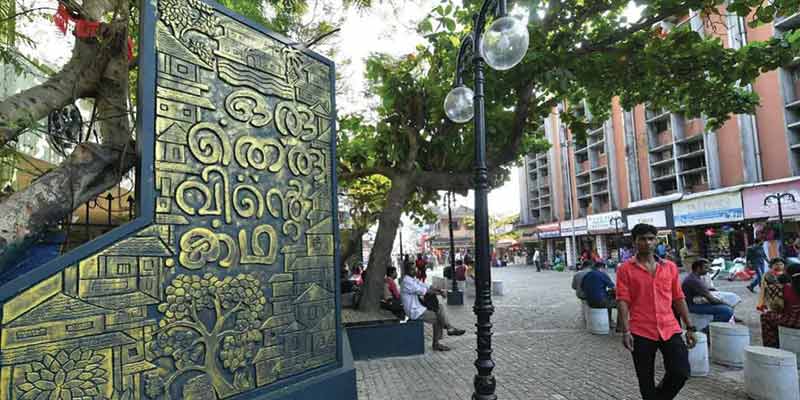- India
- Jun 24
Kozhikode becomes India’s first ‘UNESCO City of Literature’
• Kozhikode in Kerala was officially declared as India’s first ‘UNESCO City of Literature’ on June 23.
• In October 2023, Kozhikode had earned a place in the ‘Literature’ category of the UNESCO Creative Cities Network (UCCN).
• Gwalior and Kozhikode from India are among the 55 new cities which have joined the UCCN. The new list was published on World Cities Day, which falls on October 31.
• Gwalior in Madhya Pradesh made it to the coveted list in the ‘Music’ category.
• The Network now has 350 cities in more than 100 countries.
Other Indian cities in UCCN:
i) Srinagar - Craft and Folk Arts
ii) Chennai - Music
iii) Varanasi - Music
iv) Jaipur - Crafts and Folk Arts
v) Mumbai - Film
vi) Hyderabad - Gastronomy.
Kozhikode is an important destination for book festivals
• Known as the city of Zamorins once, Kozhikode, also known as Calicut during British rule, served as the gateway to the coast for many foreigners, such as Persians, Arabs, Chinese, and eventually Europeans, centuries ago.
• The cradle of the freedom movement in Kerala, Kozhikode has also been an important destination for book festivals for many decades.
• Kozhikode is home to more than 70 publishing houses, which bring out 400 to 500 books a year, and more than 500 libraries, which account for tens of thousands of members.
• Literature and reading are deeply embedded in the daily lives of its inhabitants.
• An array of festivals is organised all year round on literary themes. Among them, the 40-day Beypore Art, Craft, Tourism, and Literature Festival, which commemorates the birth of the famous author Vaikom Muhammad Basheer, and the Kerala Literature Festival, one of the country’s biggest literary festivals, shine the spotlight on artists and book professionals and promote the dissemination of literary works.
UNESCO Creative Cities Network (UCCN)
• Launched in 2004, the UNESCO Creative Cities Network (UCCN) aims to strengthen cooperation with and among cities that have recognised creativity as a strategic factor of sustainable development as regards economic, social, cultural and environmental aspects.
• By joining the Network, cities acknowledge their commitment to sharing best practices, developing partnerships that promote creativity and the cultural industries, strengthening participation in cultural life and integrating culture in urban development plans.
• The Network further commits to supporting the United Nations frameworks, particularly the 2030 Agenda for Sustainable Development.
• The UCCN covers seven creative fields: Crafts and Folk Art, Design, Film, Gastronomy, Literature, Media Arts, and Music.
Objectives of UCCN:
i) Strengthen international cooperation between cities that have recognised creativity as a strategic factor of their sustainable development.
ii) Stimulate and enhance initiatives led by member cities to make creativity an essential component of urban development, notably through partnerships involving the public and private sectors and civil society.
iii) Strengthen the creation, production, distribution and dissemination of cultural activities, goods and services.
iv) Develop hubs of creativity and innovation and broaden opportunities for creators and professionals in the cultural sector.
v) Improve access to and participation in cultural life as well as the enjoyment of cultural goods and services, notably for marginalised or vulnerable groups and individuals.
vi) Fully integrate culture and creativity into local development strategies and plans.
Manorama Yearbook app is now available on Google Play Store and iOS App Store

